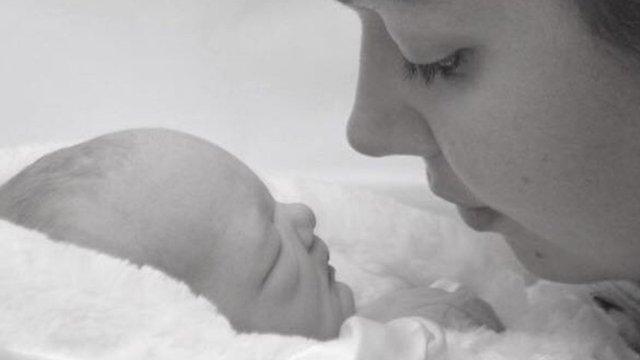Parents want to end the taboo of talking about baby loss
- Published
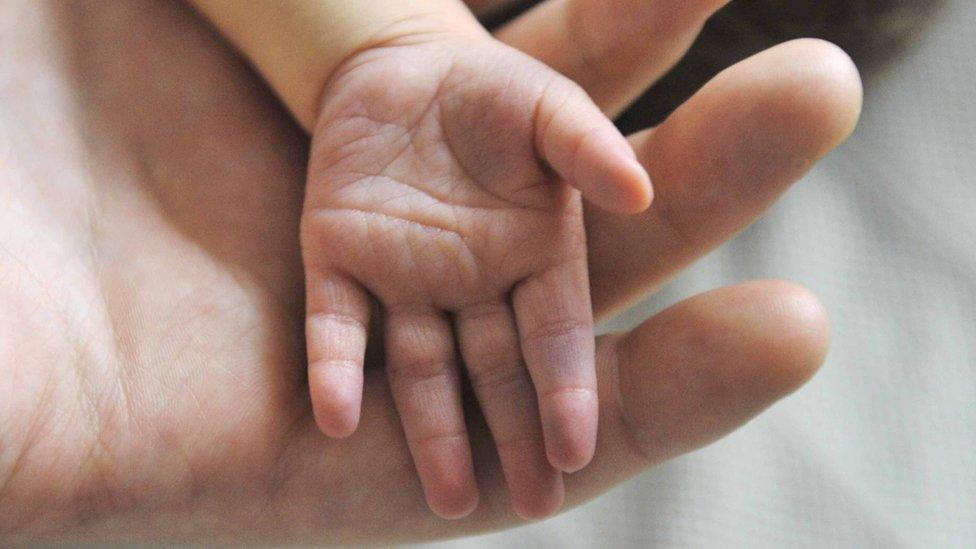
Parliament will discuss baby loss for the first time on Thursday
Parents who have experienced second trimester loss, stillbirth or neonatal death have backed calls by two MPs for higher standards of care across the NHS and to encourage people to be more open about baby loss.
It comes as two Conservative MPs raise the issue in Parliament, as part of Baby Loss Awareness week, external.
Here are some of their stories.

'People unfriended me'
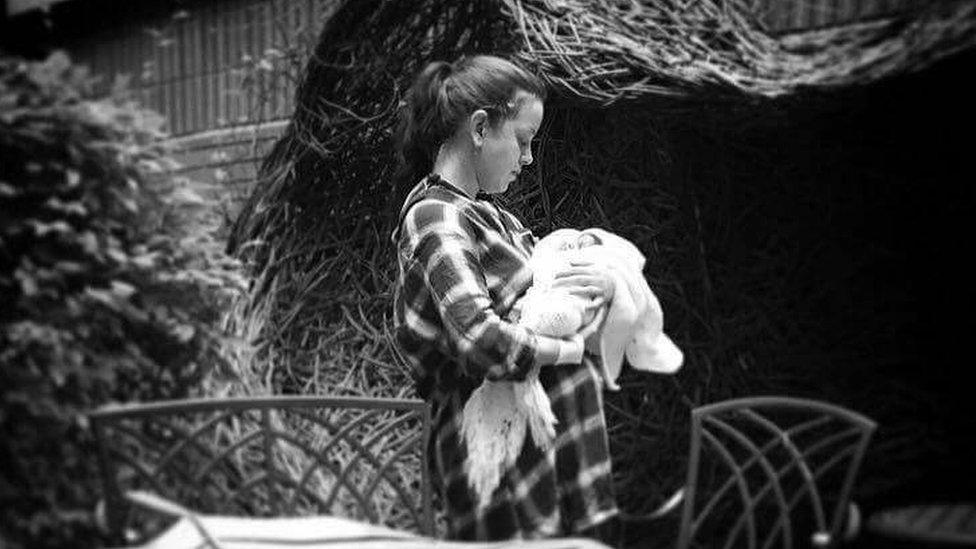
Chloe Nicholson and her daughter Phoebe-Quinn in the Butterfly Courtyard at the Royal Derby Hospital
"You don't know anything about stillbirths until you are forced to look them up and see the statistics," said Chloe Nicholson, who was faced with the tragedy less than two months ago.
The 26-year-old's pregnancy came as a big surprise in January this year, but a very happy one.
Chloe, from Ilkeston, Derbyshire, said she was considered "low risk" and despite her experiencing severe vomiting, known as hyperemesis gravidarum, external, and pelvic pain, known as symphysis pubis dysfunction, external, it was only her who suffered and the baby was "happy as Larry" throughout.
But, on 8 September, she couldn't feel any movement.
"I went in just to get checked out," said Chloe. "I thought it would be fine and if something was wrong, I would probably have her that day."
But when nurses couldn't find a heartbeat, Chloe went for a scan. The nurse then asked for her hand. Less than 24 hours later, she had a stillbirth to deliver Phoebe-Quinn.
"I was angry at first," she said. "I just didn't understand why it had happened. It is terrifying."
And when she wanted to talk about it on Facebook, she lost 26 friends.
"They just didn't want to hear about it," she said. "It was like they thought you should be ashamed. People just don't want to discuss it when a baby is involved."

Joy and guilt
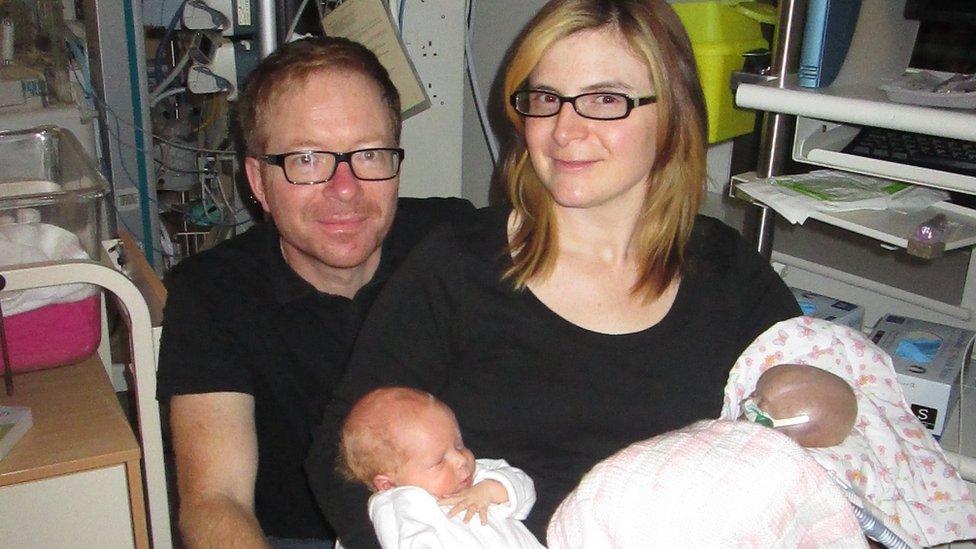
Luke and Emma Block with their newborn twins, Ethan and Abigail, shortly before their daughter died
After a year of trying for a baby, Luke and Emma Block were thrilled to find they were expecting twins.
But the couple from Faversham, Kent, soon discovered problems that would eventually lead to the death of their baby girl, Abigail.
"It was our first scan," said 40-year-old Luke. "They noticed there was a problem with the growth of one of the twins and that we might lose one of them. That is where it all began."
There was hope when Abigail made it to 36 weeks, born weighing only 1lb 6oz, while her brother, Ethan, was a healthy baby boy.
But after five weeks in intensive care, it was time to say goodbye to one of their children.
"We feel blessed we had that time with her," said Luke. "Some parents don't, but with her, her eyes were open, we could change her nappy and we could be part of her care."
They also had new-born Ethan to think of.
"The pain of losing a child is intense and even more so when you have a healthy baby to look after and get so much joy from," he said. "At times we even felt guilty for feeling happy."

Key statistics on stillbirth and neonatal deaths
In 2013, one in every 216 babies delivered in the UK was stillborn
Contrary to common perception, major birth defects account for fewer than 10% of stillbirths
In 2013, one in every 370 babies born in the UK died in the first four weeks of life
In around a third of stillbirths the exact reason for the baby's death is unclear and the death is described as "unexplained"
A third of stillborn babies - around 1,200 babies every year - die after a full-term pregnancy

'A piece of our hearts missing'
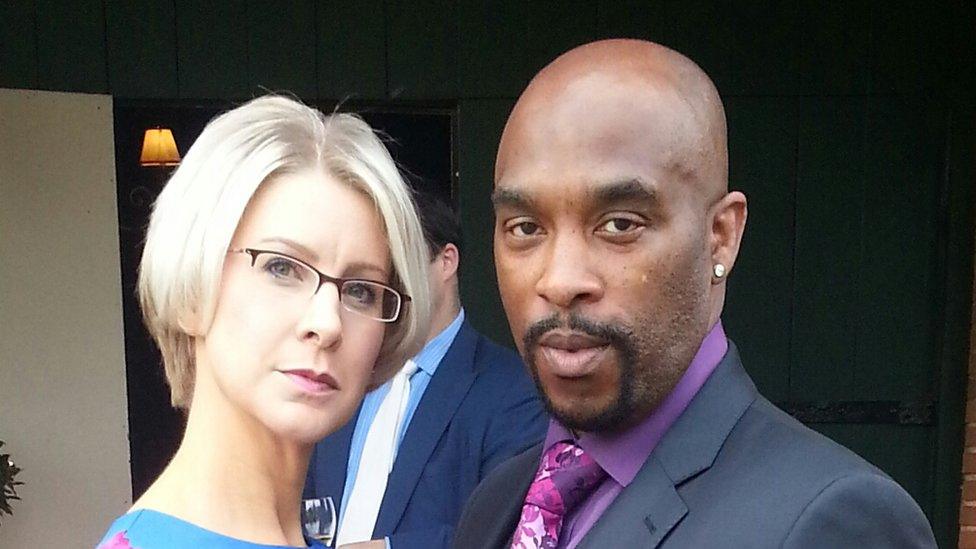
Aimee and Michael Tulloch have lost three babies soon after they were born
Aimee and Michael Tulloch, from Birmingham, have had to endure the loss of three babies.
After two rounds of artificial insemination, external (or IUI), Aimee became pregnant in 2013. But an infection at 23 weeks meant baby Eli only lived for four days, dying in his mother's arms.
"That evening Michael and I left the hospital without our baby," said the 37-year-old. "We left with a piece of our hearts missing."
In October 2014, another round of IUI saw Aimee become pregnant with twins. But, just before the 25-week mark, she went into hospital with Braxton Hicks contractions, her waters started to leak and real labour contractions began. Their baby girl, Storm, lived for just 17 minutes, while baby boy Isaiah made it to 11 hours.
"Losing a child is a very lonely place," Aimee said. "They will always be my children; I will always be their mum and want to talk about them.
"I was very lucky with friends and family, although I lost one childhood friend, perhaps because she didn't know how to talk about it.
"But I felt I had to manage their feelings. It makes people feel uncomfortable and then they end up saying stupid things like 'You can have another one.'"

'I didn't do anything wrong'
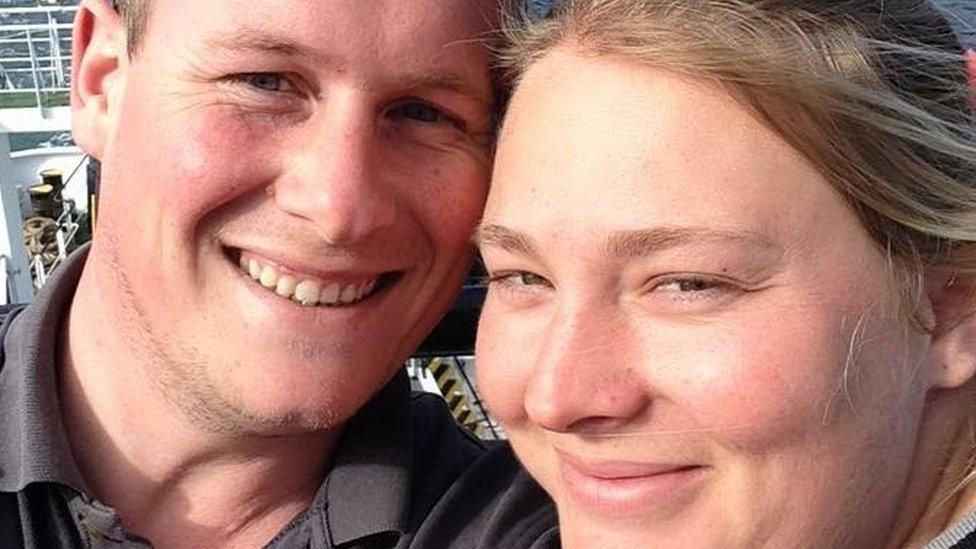
Leanne Louch and her partner, Paul Seaman, lost their twins, Thomas and Jack, at 21 weeks
Leanne Louch and her partner Paul Seaman got a huge surprise when they found out in March they were expecting identical twins.
But the Nottingham couple were left heartbroken after Thomas and Jack both died at 21 weeks gestation, before being born.
"I was told there were extra risks but no-one went in-depth about what they were," said 30-year-old Leanne. "I was getting scanned every two weeks and obviously you hear about things, but no-one talks about it."
During a weekend at the end of June, she started feeling some pains and on a Monday morning, one of her waters broke.
"They told me if I could hang on until 24 weeks, they could give injections of steroids to help lungs develop," she said.
But by Wednesday, her second water had broken. On Thursday, doctors gave the couple the news that both boys had died. She then gave birth to the twins on Friday.
"When I went for the post-mortem results, they said I could go out the backdoor rather than walk through the pre-natal clinic with everyone getting their scans," said Leanne. "But I said no, I walked through that room with my head held high. I didn't do anything wrong."

'We thought they'd got it wrong'
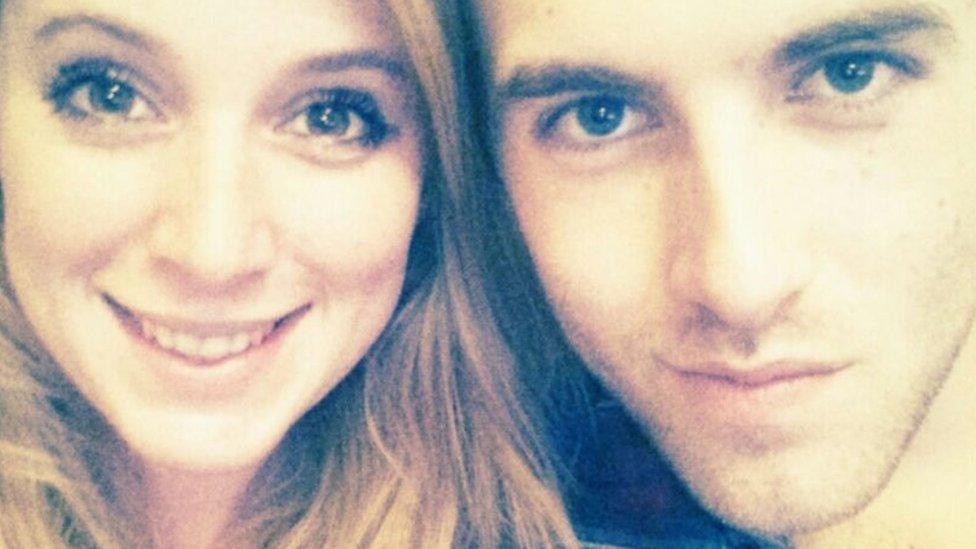
Zoe Burdaky and her partner Kyle Woollacott are expecting their second child but lost their first at 37 weeks
Zoe Burdaky and her partner, Kyle Woollacott, are just weeks away from welcoming their child into the world. But less than a year ago they suffered the devastation of losing a daughter at 37 weeks.
"It was a very straightforward pregnancy," said 24-year-old Zoe. "There were no risk factors."
But, weeks before the due date, she stopped feeling movement.
"We just thought we were being oversensitive," said Kyle, who is also 24. "We thought they would just tell us everything was OK."
Instead, nurses said they could not find a heartbeat and there had been a clot. Baby Lily was delivered the next day, stillborn.
"It was like a dream," said Kyle. "Even when the baby was being born, we thought 'they've got it wrong.'"
Being pregnant with their second child, with just a few weeks to go, has been an anxious time.
"What I've found the hardest is when people ask if it's my first," said Zoe. "I don't want to put people in that situation when they are being polite, but I want to acknowledge Lily."
Kyle said: "We are excited now but it is scary too and we are having scans every week."

How to get help
If you need advice or support after experiencing baby loss, there are a number of charities who can help.
Stillbirth and Neonatal Death, external (Sands): Call 0207 436 5881 or email helpline@uk-sands.org
Child Bereavement UK, external: Call 0800 02 888 40 or email support@childbereavementuk.org
The Miscarriage Association, external: Call 01924 200 799 or email info@miscarriageassociation.org.uk
- Published10 October 2016
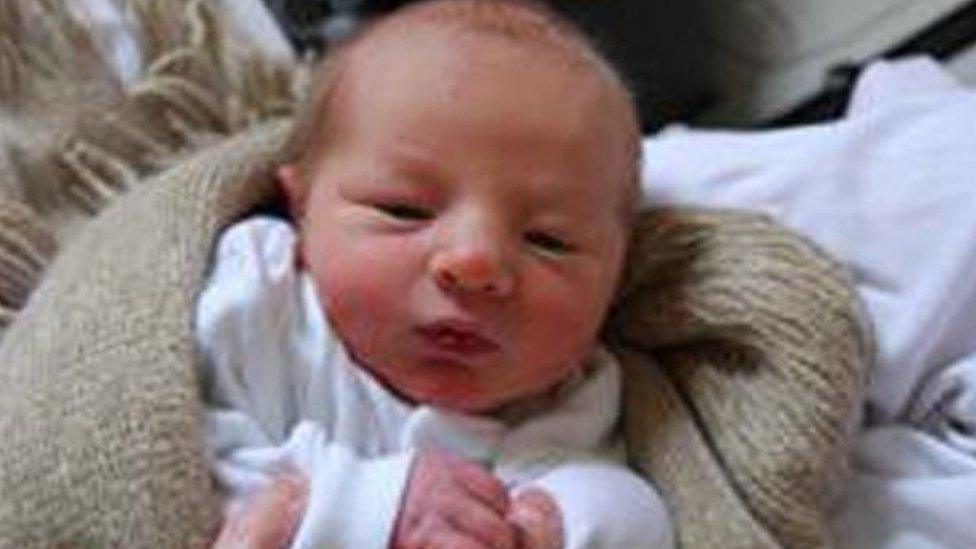
- Published3 March 2011
- Published25 May 2016
